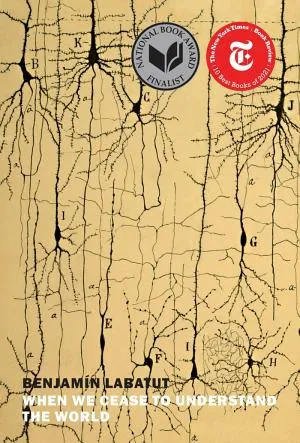
[The night gardener] had also gone through a bad divorce, become estranged from his only daughter and been diagnosed with skin cancer, but he insisted that all of that, however painful, was secondary to the sudden realization that it was mathematics—not nuclear weapons, computers, biological warfare or our climate Armageddon—which was changing our world to the point where, in a couple of decades at most, we would simply not be able to grasp what being human really meant.
Take quantum mechanics, the crown jewel of our species, the most accurate, far-ranging and beautiful of all our physical theories. It lies behind the supremacy of our smartphones, behind the Internet, behind the coming promise of godlike computing power. It has completely reshaped our world. We know how to use it, it works as if by some strange miracle, and yet there is not a human soul, alive or dead, who actually gets it. The mind cannot come to grips with its paradoxes and contradictions. It’s as if the theory had fallen to earth from another planet, and we simply scamper around it like apes, toying and playing with it, but with no true understanding.
The night gardener once asked me if I knew how citrus trees died: when they reach old age, if they are not cut down and they manage to survive drought, disease and innumerable attacks of pests, fungi and plagues, they succumb from overabundance. When they come to the end of their life cycle, they put out a final, massive crop of lemons. In their last spring their flowers bud and blossom in enormous bunches and fill the air with a smell so sweet that it stings your nostrils from two blocks away; then their fruits ripen all at once, whole limbs break off due to their excessive weight, and after a few weeks the ground is covered with rotting lemons. It is a strange sight, he said, to see such exuberance before death. One can picture it in animal species, those million salmon mating and spawning before dropping dead, or the billions of herrings that turn the seawater white with their sperm and eggs and cover the coasts of the northeast Pacific for hundreds of miles. But trees are very different organisms, and such displays of overripening feel out of character for a plant and more akin to our own species, with its uncontrolled, devastating growth. I asked him how long my own citrus had to live. He told me that there was no way to know, at least not without cutting it down and looking inside its trunk. But, really, who would want to do that?
If matter were prone to birthing monsters of this kind, Schwarzschild asked with a trembling voice, were there correlations with the human psyche? Could a sufficient concentration of human will—millions of people exploited for a single end with their minds compressed into the same psychic space—unleash something comparable to the singularity?